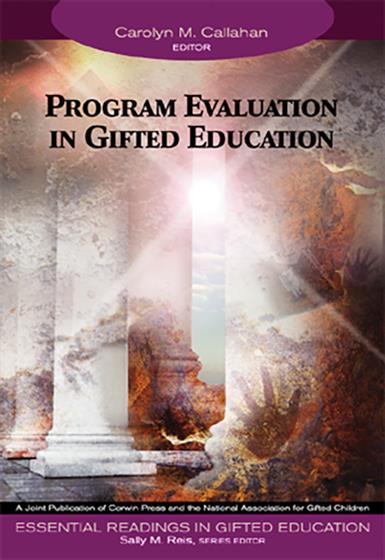Hands-on, Practical Guidance for Educators
From math,
literacy, science, equity, multilingual learners, and SEL, to assessment, school counseling,
and education leadership, our books are research-based and authored by experts
on topics most relevant to what educators are facing today.

Program Evaluation in Gifted Education
The expert guide to the major issues, the chief trends, and the most effective models of program evaluation in gifted education!
The readings in this ready-reference report on specific program evaluations, offer critical guidance in the development and utilization of instruments for assessing gifted and talented programs, and are designed to stimulate the discussion of issues surrounding the evaluation of gifted programs.
Key features include:
- Carolyn M. Callahan's comprehensive and insightful examination of the past, present, and hopeful future of gifted program evaluation
- Research-informed theories, practical guidelines, and successful models of evaluation
- Recommendations for future exploration
Product Details
- Grade Level: PreK-12
- ISBN: 9781412904360
- Published By: Corwin
- Series: Essential Readings in Gifted Education Series
- Year: 2004
- Page Count: 168
- Publication date: May 20, 2015
Review Copies
This book is not available as a review copy.


